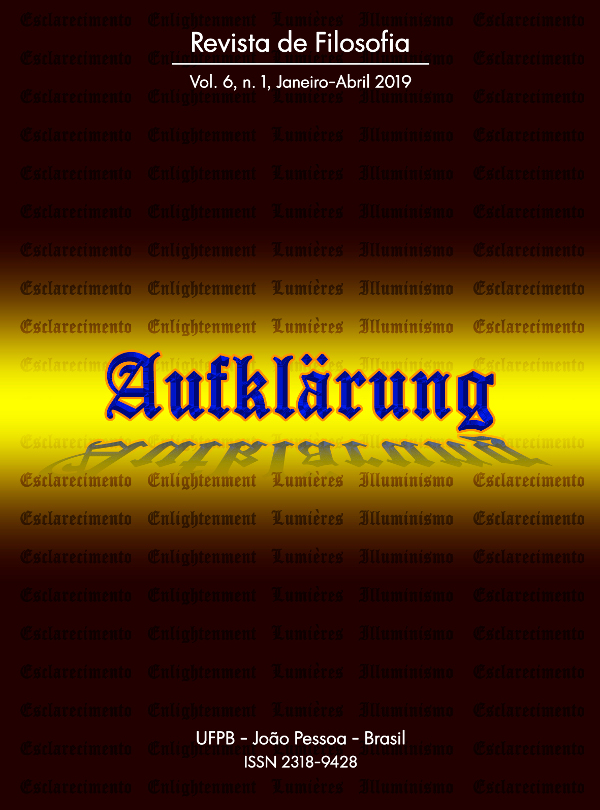Relativism in Context
DOI:
https://doi.org/10.18012/arf.2016.44100Palavras-chave:
Relativism, Contextualism, Epistemic Frameworks, Factive ReasonResumo
The present paper introduces four fundamental issues within the framework of epistemic relativism: (a) the lack of precision in the concept of knowing; (b) the changes in the demands between context of use and of evaluation; (c) the violation of the real disagreement intuition; and (d) the incommensurability of epistemic frameworks. The answer to these problems should revolve around the idea that knowledge is subject to the interests and intentions of individuals in everyday life. The main thesis thus consists in that it is necessary to avoid the impression that epistemic frameworks are some sort of watertight compartment. In this way, relativism may be defended from the viewpoint that epistemic frameworks are artificial generalizations that may be relevant to the attribution of knowledge. In this respect, it must be borne in mind that some norms are shared by different epistemic frameworks, and that each time a given context or circumstance takes place, the same norm may be applied.Downloads
Referências
Bergmann, M. (2004). Epistemic Circularity: Malignant and Benign. Philosophy and Phenomenological Research, 69, 709-727.
Bland, S. (2015). Circularity, Scepticism and Epistemic Relativism. Social Epistemology, DOI:10.1080/02691728.2014.986557.
Boghossian, P. (2006). Fear of Knowledge: Against Relativism and Constructivism. Oxford: Oxford University Press.
Cohen, S. (1999). Contextualism, skepticism, and the structure of reasons. Noûs, 33(13), 57-89.
Cruse, A. (1986). Lexical semantics. Cambridge: Cambridge University Press.
DeRose, K. (1992). Contextualism and Knowledge Attributions. Philosophy and Phenomenological Research, 52, 913-929.
Geurts, B. (2010). Quantity Implicatures. Cambridge: Cambridge University Press.
Greco, J. (2003). Knowledge as Credit for True Belief. En M. DePaul, & L. Zagzebski (Edits.), Intellectual Virtue: Perspectives from Ethics and Epistemology (págs. 111-134). Oxford: Oxford University Press.
Greco, J. (2004). A Different Sort of Contextualism. Erkenntnis, 61, 383-400.
Greco, J. (2008). What's Wrong with Contextualism? The Philosophical Quarterly, 58, 416-436.
Hawthorne, J. (2004). Knowledge and Lotteries. Oxford: Clarendon Press.
Hirschberg, J. (1991). A Theory of Scalar Implicature. New York: Garland.
Kindermann, D. (2013). Relativism, Sceptical Paradox, and Semantic Blindness. Philosophical Studies, 162, 585-603.
Kolbel, M. (2007). How to Spell Out Genuine Relativism and How to Defend Indexical Relativism. International Journal of Philosophical Studies, 15, 281-288.
Kölbel, M. (2009). The Evidence for Relativism. Synthese, 166, 375-395.
Levin, J. (2008). Assertion, Practical Reason, and Pragmatic Theories of Knowledge. Philosophy and Phenomenological Research, 76, 359-384.
Luper, S. (2004). Epistemic Relativism. Philosophical Issues, 14(1), 271-295.
MacFarlane, J. (2005). Making sense of relative truth. Proceedings of the Aristotelian Society, 105(3), 321-339.
MacFarlane, J. (2010). Relativism and Knowledge Attributions. En S. Bernecker, & D. Pritchard (Edits.), Routledge Companion to Epistemology (págs. 536-534). London: Routledge.
MacFarlane, J. (2014). Assessment Sensitivity: Relative truth and its applications. . Oxford: Oxford University Press.
Montminy, M. (2009). Contextualism, Relativism and Ordinary Speakers' Judgments. Philosophical Studies, 143, 341-356.
Pritchard, D. (2009). Defusing epistemic relativism. Synthese, 166(2), 397-412.
Quine, W. V. (1960). Word and Object. Cambridge: MIT Press.
Richard, M. (2004). Contextualism and Relativism. Philosophical Studies., 119, 215-242.
Seidel, M. (2014). Epistemic relativism: A constructive critique. Palgrave Macmillan.
Stanley, J. (2005). Knowledge and Practical Interests. Oxford: Oxford University Press.
Stich, S. (1990). The Fragmentation of Reason. Cambridge, MA: MIT Press.
Williams, M. (2000). Is Contextualism Statable? Philosophical Issues, 10, 80-85.
Williams, M. (2007). Why (Wittgensteinian) contextualism is not relativism. Episteme: A Journal of Social Epistemology, 4(1), 93-114
Arquivos adicionais
Publicado
Como Citar
Edição
Seção
Licença
Política de Direito Autoral para os itens publicados pela Revista:
1.Esta revista é regida por uma Licença da Creative Commons aplicada a revistas eletrônicas. Esta licença pode ser lida no link a seguir: Creative Commons Attribution 4.0 International (CC BY 4.0).
2.Consonante a essa politica, a revista declara que os autores são os detentores do copyright de seus artigos sem restrição, e podem depositar o pós-print de seus artigos em qualquer repositório ou site.
Política de Direito de Uso dos Metadados para informações contidas nos itens do repositório
1. Qualquer pessoa e/ou empresa pode acessar os metadados dos itens publicados gratuitamente e a qulquer tempo.
2.Os metadados podem ser usados sem licença prévia em qualquer meio, mesmo comercialmente, desde que seja oferecido um link para o OAI Identifier ou para o artigo que ele desceve, sob os termos da licença CC BY aplicada à revista.
Os autores que têm seus trabalhos publicados concordam que com todas as declarações e normas da Revista e assumem inteira responsabilidade pelas informações prestadas e ideias veiculadas em seus artigos, em conformidade com a Política de Boas Práticas da Revista.






































